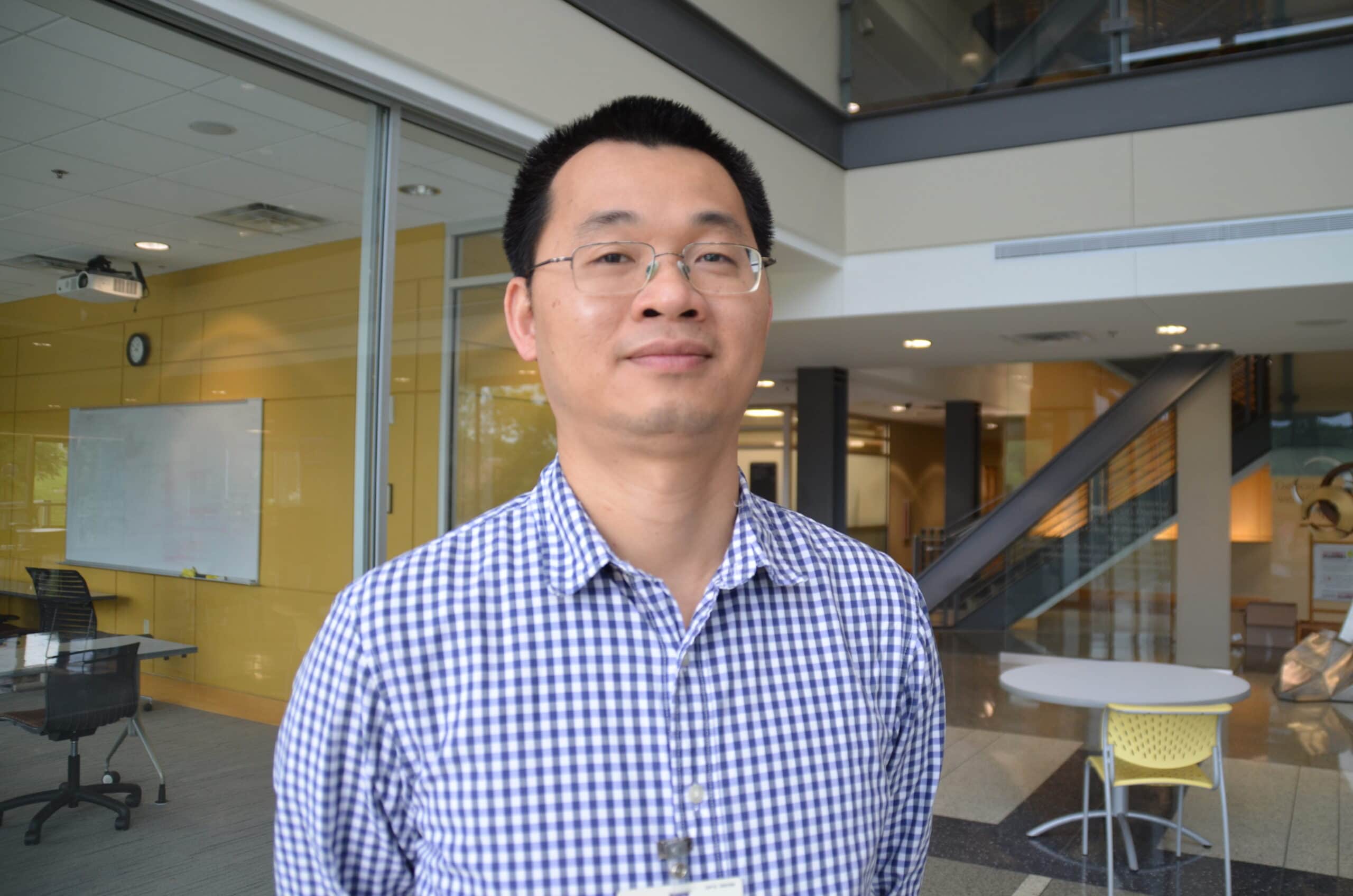UAMS Researcher to Lead Study on Antibiotic Resistance in Fresh Vegetables in the United States
| LITTLE ROCK — En Huang, Ph.D., an associate professor at the University of Arkansas for Medical Sciences’ Fay W. Boozman College of Public Health Department of Environmental Health Sciences, has received a three-year, $1 million research grant from the United States Department of Agriculture (USDA).
Huang and his team — which consists of Sun Hee Moon, Ph.D., and Se-Ran Jun, Ph.D., from UAMS; along with Xinhui Li, Ph.D., of the University of Wisconsin-LaCrosse; Erin DiCaprio, Ph.D., of the University of California-Davis; and Xu Yang, Ph.D., of California State Polytechnic University-Pomona — will investigate why some bacteria isolated from retail vegetables in the United States are resistant to beta-lactam antibiotics. The aforementioned class of antibiotics – considered the most important classes of antibiotics – are used in the management and treatment of bacterial infections.
“Food is an important vehicle for transmitting foodborne microorganisms,” Huang said. “Since most vegetables are consumed when they’re raw or after only being minimally cooked, if present, those antibiotic-resistant bacteria could potentially harm people. Therefore, there’s an urgent need to understand the role of fresh produce in the transmission of antibiotic resistance.”
Typically, vegetables are not treated by antibiotics. However, there’s a growing possibility that fresh vegetables in the U.S. may be contaminated by either soil amendments or the water used to irrigate the crops containing antibiotic-resistant organisms. The possibility of vegetables being a carrier of antibiotic-resistant bacteria and resistance genes is a risk to public health.
The researchers seek to determine the prevalence of antibiotic resistance in retail vegetables and determine critical factors contributing to antibiotic resistance transmission in the vegetable production and supply chains. Additionally, they’ll create fact sheets, videos and workshops with stakeholders. They will also present all findings to the agriculture industry.
The study – which begins in August – will take place in Arkansas, Wisconsin and Southern California.
“This is a much-needed food safety awareness project,” Huang said. “We want to help keep people safe. Right now, there’s a lack of research to determine the prevalence of antibiotic resistance in vegetables in the U.S.”
The researchers will collect 1,200 vegetable samples, 400 from each of the three participating states. Studying vegetables grown in three different regions will help the group properly assess the situation.
“We’re going to closely survey and study vegetables from the south, north and west – especially California, which is the highest production area,” Huang said. “We want to find out the prevalence of antibiotic resistance in vegetables.
The researchers will further collect samples of soil, irrigation water and vegetables directly from farms.
“We’ll also learn if different irrigation methods and the use of organic soil amendments can have an impact on antibiotic resistance prevalence in the vegetables that are sent to the general public.”
“We must reduce the risk of antibiotic resistance, especially during the production and transportation of vegetables,” Huang said.
The success of the project will enhance knowledge related to dissemination of antibiotic resistant bacteria in the vegetable production systems, which will help to mitigate the risk of antibiotic resistance in vegetable products.
This research will combine the efforts of individuals from institutions in Arkansas, Wisconsin and California. Huang is enthusiastic about leading the venture.
“On the team we’ll have microbiologists, bioinformaticians, extension specialists that will help with this project,” he said. “We’ll have a well-rounded study.”
UAMS is the state’s only health sciences university, with colleges of Medicine, Nursing, Pharmacy, Health Professions and Public Health; a graduate school; a hospital; a main campus in Little Rock; a Northwest Arkansas regional campus in Fayetteville; a statewide network of regional campuses; and eight institutes: the Winthrop P. Rockefeller Cancer Institute, Jackson T. Stephens Spine & Neurosciences Institute, Harvey & Bernice Jones Eye Institute, Psychiatric Research Institute, Donald W. Reynolds Institute on Aging, Translational Research Institute, Institute for Digital Health & Innovation and the Institute for Community Health Innovation. UAMS includes UAMS Health, a statewide health system that encompasses all of UAMS’ clinical enterprise. UAMS is the only adult Level 1 trauma center in the state. UAMS has 3,485 students, 915 medical residents and fellows, and seven dental residents. It is the state’s largest public employer with more than 11,000 employees, including 1,200 physicians who provide care to patients at UAMS, its regional campuses, Arkansas Children’s, the VA Medical Center and Baptist Health. Visit www.uams.edu or uamshealth.com. Find us on Facebook, X (formerly Twitter), YouTube or Instagram.###
